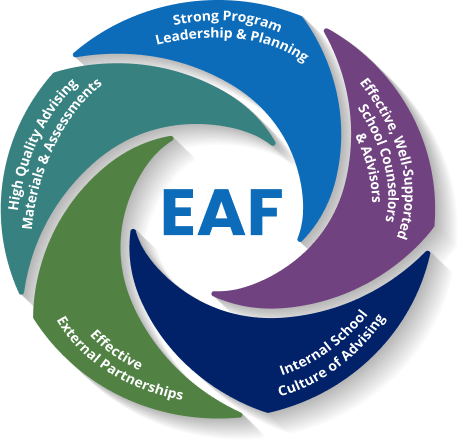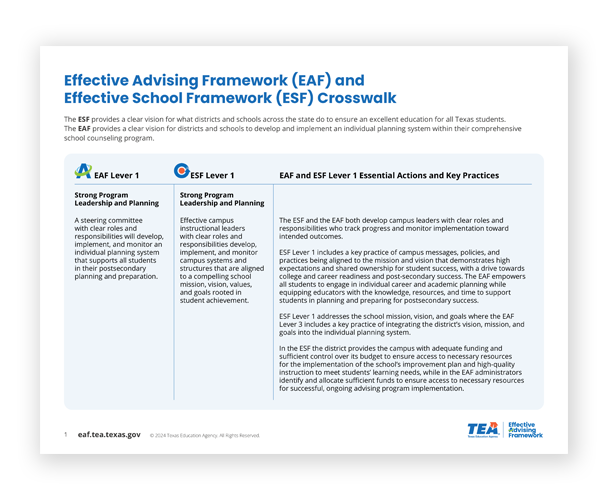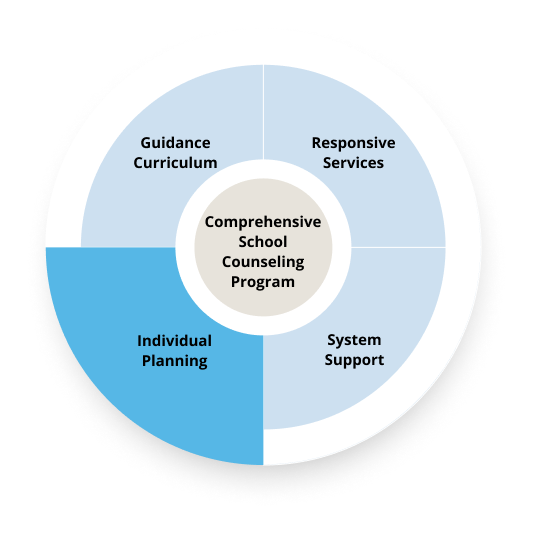
An Integrated Approach to Individual Student Planning
The EAF empowers every student to engage in individual career and academic planning and equips educators with the knowledge, resources, and time to support all students in planning and preparing for postsecondary success. Effective advising leverages internal partners, external partners, and high-quality advising materials and assessments to support the whole child in postsecondary planning and preparation.
The EAF is aligned with the Effective Schools Framework (ESF) and the Effective District Framework (EDF) and supports districts in a systematic approach to improving the individual planning system for all students by using a framework defined by district commitments, levers, essential actions, and key practices to develop a common vision and actionable goals which leads to system effectiveness and student outcomes.
Aligning Education for Success
The EAF is aligned to the structure and content of the Effective Schools Framework (ESF) and supports districts in a systematic approach to improving the individual planning system for all students. The EAF is also defined by district commitments, levers, essential actions, and key practices to develop a common vision and actionable goals, which lead to system effectiveness and student outcomes.

The Texas Model
The Texas Model outlines a process for a comprehensive school counseling program that meets the unique needs of campuses. School counselors work with school staff, students, parents, and the community to plan, implement, and evaluate each of the four components of the Texas Model.
Individual Planning
One component is Individual planning, which guides students as they plan, monitor, and manage their own educational, career, personal and social development (TEC §33.005). The EAF is grounded in this statute and provides a system for implementing individual planning within the Texas Model.

Effective Advising Outcomes
EAF is a strategic approach to advising as a clear workstream within counseling. It is driven by relationships, communication, and regular touchpoints. It is designed to help students make connections between academic choices, career possibilities, and post-secondary education. Effective Advising requires program leadership, workstream ownership, transition management, and content expertise.
Community
Educators
Administrators
Families
School Counselors

Enhancing Student Success
Effective advising helps students make connections to and through their educational pathways. It’s more than just an annual meeting with a counselor and involves partnerships that strengthen K-12 advising services.
The approach emphasizes incorporating career and academic support into existing programs for a seamless experience where all students receive individual academic and career planning.
The EAF supports this mission by providing the resources needed for high-quality advising services and ensuring every student has access to comprehensive and effective advising support.
